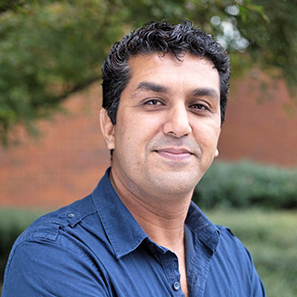Desktop News | February 2023
The Neuroscience of Autism, a collection of essays edited by UA psychology professor Dr. Rajesh Kana, is an incisive textbook that provides readers with a robust understanding of the cyclically configured causal mechanisms that generate symptomatic manifestations of autism spectrum disorders (ASD) in children, teens, and adults.

Recognizing autism to be a complex disorder that defies formulaic descriptions, Kana takes an interdisciplinary approach in establishing theoretical footholds for better comprehending the behavioral, social, cognitive, neurobiological and genetic catalysts of ASD and its causes. This, he does, by including the works of scholars with far-flung expertise in the edited collection.
As a result, the book is enriched by multifarious perspectives on ASD offered by leading world researchers in STEM related fields like speech pathology, genetic studies, clinical psychology, psychiatry, neuroanatomy, neuroscience, neurobiology, sociology and even animal science(s).
The aim of delineating ASD-related causal patterns through interdisciplinary theoretical lenses is to provide a leeway into the development of pragmatic models that can offset constructive interventions in the behaviors of autistic people.
Apart from the broad yet comprehensive overview of past and recent ASD research offered by The Neuroscience of Autism, the book has been uniquely written in simple, straightforward, and less-jargony language. Speaking about this, Kana said, “I always kept the audience in my mind when I was writing or talking to contributors.”
Due to its accessible and simplified format, it reduces the gap between scientific and societal conceptions of ASD. Hence, the offerings of the book will be of immense value to people across a wide range of disciplines and interests. For one, it will be a great survey material for faculty members teaching undergraduate and graduate students whose research interests touch on autism and other developmental disabilities in psychology and neuroscience. Also, as the book notes in its introduction, “it will be useful for researchers, professionals working in the field of autism, parents [and families] of children with autism and the lay public.”
Interestingly, Kana hopes to follow up The Neuroscience of Autism with a sequel that highlights drastic changes that might happen in ASD studies in the coming years. He also feels strongly about authoring another book that leverages the theoretical frameworks explained in The Neuroscience of Autism to investigate relevant medico-psychological case studies and present the experiential perspectives of patients with ASD or their families.